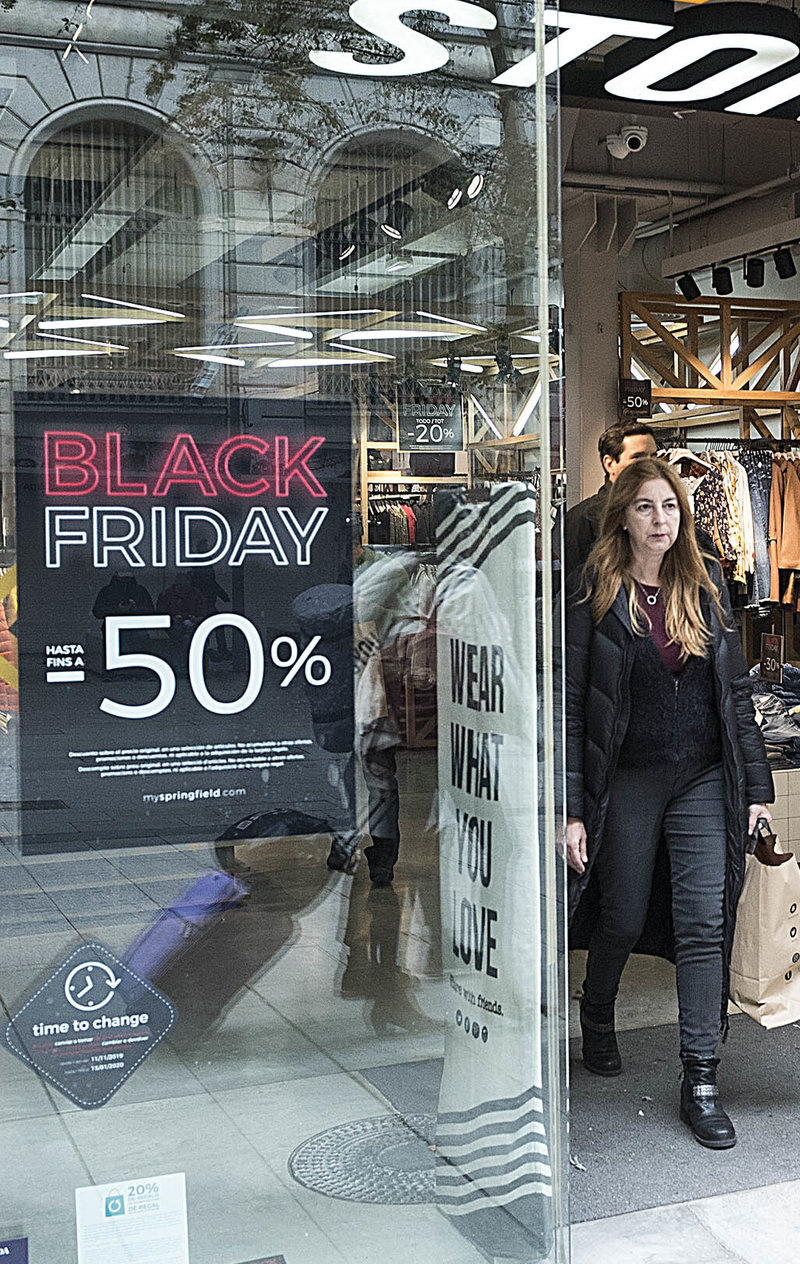Long-term resident
BACK TO BLACK
When I first started to understand spoken language (English, in this case, circa 1961) it seemed to me that come Yuletide every adult in every room began to repeat the mantra ’Christmas gets more commercial each year’ (or words to that effect). And they kept on saying it until 1984, when I said goodbye to the lot of them and moved to Catalonia, only to find that it was commonplace to hear everyone over the age of twenty saying exactly the same thing, albeit not in English. Indeed, here it was even easier to spot the onslaught of Xmas, heralded as it was by countless advertisements for the same three products – perfume, torrons (nougat slabs) and cava – which would spring up on cue sometime in mid-November. After a few years of this, it dawned on me that Christmas wasn’t getting more commercial every year, rather for decades it had always been little more than a regular celebration of a vast shopping spree, and that the function of the seasonal religious trimmings (nativity scenes, carols broadcast in the street, etc.) was simply to make the public feel less shameful about its obsessive-compulsive purchasing. Once this had sunk in, Christmas became a known quantity, and so could be taken in its stride.
At least until fairly recently, thanks to the shoehorning of America’s Black Friday into the Christmas routines of countries around the world. The term first appeared in certain US cities in 1961 and later became more widespread in the 1970s and 1980s until its grubby little tentacles eventually reached out across the oceans in the early years of the millennium. It refers to the first Friday after Thanksgiving (i.e. the fourth Friday of November) and marks the beginning of the Christmas shopping season by offering special discounts. There are two theories as to why it’s called ’black’, one being that it became fairly common in the States for people to queue for hours and then injure themselves, sometimes severely, as they stampeded into the stores; another is that it put most retailers in the black because of all the money they made on that one day (these two theories are, of course, complementary). At first Black Friday seemed fairly innocuous: a tiny American tradition foisted upon us for only one day. But things have started to get out of hand. To begin with, the Black Friday offers have become more and more confusing, unless you’re a chartered accountant. To give one example among many, in the window of a Barcelona pharmacy, there were no less than 12 separate posters offering different Black Friday discounts on hair and skin products: one had a discount of 15%, but two of the same product got you 40% and so on up to four different markdowns. And that’s not all: more and more shops here are starting to lengthen Black Friday into weeks, or, in the case of a furniture shop on the Meridiana thoroughfare, through all of November. (They refrained from calling it Black November, which sounds like a yet to be formed terrorist group). And the Orange phone company is now trying to woo potential customers with Orange Wednesdays, when they apparently give you a couple of cinema tickets and, if I’m not mistaken, a pizza. And more of these ’special’ days are doubtless on the way. Here, at least, the last of them will surely fall on Friday, January 6th, which marks the end of the Catalan Christmas season, when everybody is stone broke or close to it. What they’ll call it is anybody’s guess. Red Saturday? Penniless post-Epiphany?


